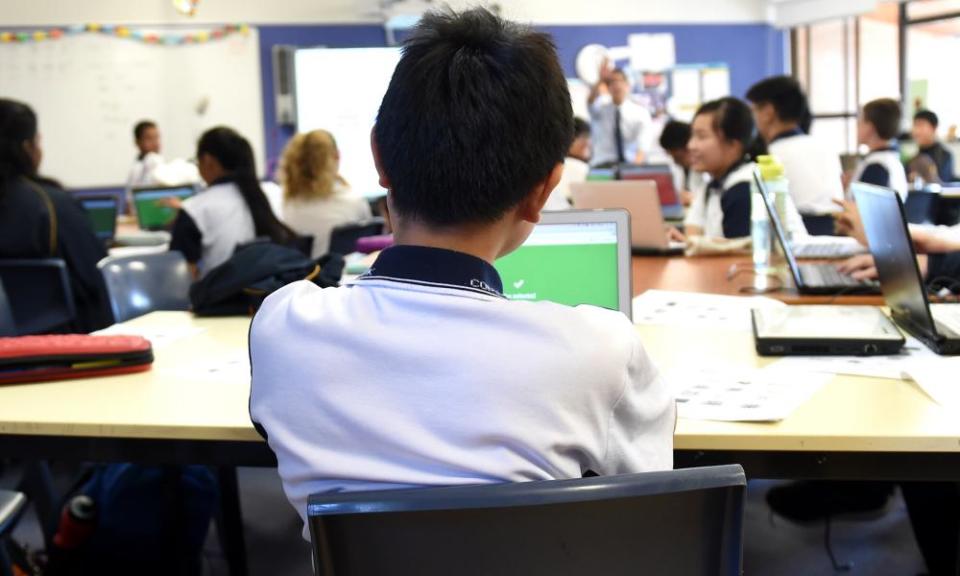Coalition to review Australian education curriculum in bid to reverse fall in student results

The federal government will review the national curriculum starting with maths and science in an effort to reverse a long-term decline in Australian students’ results in standardised testing.
Education ministers met in Alice Springs on Wednesday and Thursday to discuss a suite of reforms to deal with Australia slipping to the OECD average in maths, the first time results in one of the three core competencies has done so since international comparisons began in 2000.
The federal government agreed to bring forward a review of the national curriculum, and to Victoria’s plan to develop options to use university prerequisites for courses, such as engineering and science, to encourage high school students to study maths.
Ministers also agreed to establish a national evidence institute to provide advice on best-practice for teachers to improve student outcomes – an idea championed by federal Labor before the election and supported by the second Gonski review.
Related: Australian students' maths performance falls to OECD average in worst result since 2000
The review’s central proposal to break curriculums into “learning progressions” to move away from a rigid year-based curriculum was discussed, with a resolution to focus development of progressions on literacy and numeracy.
Reporting of Naplan standardised testing results on the My School website will shift from publication of school averages to reporting on the gains made by students at the school, according to the meeting communique.
Ministers also agreed to the federal government’s push to make the teaching of phonics and reading instruction mandatory for initial teacher-education courses and to increase the time allocated to literacy in such courses.
Ministers endorsed terms of reference for the Australian Institute for Teaching and School Leadership to review the impact of the “compliance and regulatory burden faced by teachers and school leaders”.
The federal education minister, Dan Tehan, said “decluttering the curriculum” was a priority for the federal government and he was “thrilled … this work can begin immediately”.
“The literacy and numeracy progressions will help teachers ensure that every student gets at least a year of learning from every year of school,” he said.
“Students who are falling behind will get a hand up and students who are ahead will be challenged to go further.”
At the meeting, Tehan reiterated that the federal government “does not support the breakaway review of Naplan” led by New South Wales, the Australian Capital Territory, Victoria and Queensland, which is due to report in June 2020.
The Victorian education minister, James Merlino, said the meeting was “the most productive” in his five years in the job. “The community rightly expected ministers to take significant steps in light of the recent [Program for International Student Assessment] results.”
Merlino said the review of the maths curriculum would help make it “relevant and engaging for our kids” and argued that tackling the failure of universities to set maths and sciences as pre-requisites was a “key step” in encouraging students to study higher levels of mathematics.
Labor’s federal education spokeswoman, Tanya Plibersek, said the Liberals had done “nothing serious to improve Australia’s performance in basic school subjects” in six years.
“After years of wasted time, the real test now is whether any of this translates to improvements for our kids in the classroom, and whether it actually works to lift results in basic subjects such as reading, writing and maths.”

 Yahoo News
Yahoo News 